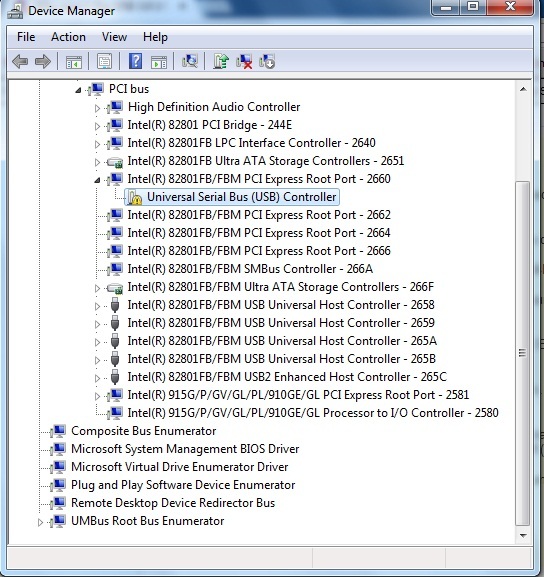

PCI\VEN_8086&DEV_27CC="Intel(R) 82801G (ICH7 Family) USB2 Enhanced Host Controller - 27CC" PCI\VEN_8086&DEV_25AD="Intel(R) 6300ESB USB2 Enhanced Host Controller - 25AD" PCI\VEN_8086&DEV_24DD="Intel(R) 82801EB (ICH5 Family) USB2 Enhanced Host Controller - 24DD" If the filter driver is not installed, the default configuration will apply: all ports would be directed to USB 2.0.PCI\VEN_8086&DEV_24CD="Intel(R) 82801DB/DBM (ICH4 Family) USB2 Enhanced Host Controller - 24CD" (Fun fact: The equivalent Linux code can be found here.) This register allows per-port configuration, to either direct it to the XHCI (USB 3.0) or EHCI (USB 2.0) controller. The filter driver's goal is to initialize the Intel-specific XUSB2PR register during PCI bus startup. Technically, the iusb3hcs driver is installed as a device lower filter of the PCI bus device. To install it, you should reinstall Intel's drivers (for your hardware - either C216 or C220), since they install the Intel(R) USB 3.0 Host Controller Switch Driver (iusb3hcs). If "iusb3hcs" does not appear when you select "Device lower filters" in the details of the "PCI bus" device, you do not have this essential driver installed. To check whether it is installed, open the Device Manager, open the View menu and select "Devices by Connection", then verify it as follows: Only some motherboards offer an option to disable USB 3.0 in the BIOS setup don't expect to find it everywhere.Īnother thing you should check is whether you have the Intel(R) USB 3.0 Host Controller Switch Driver installed. within Windows 7, the Intel(R) USB 3.0 Host Controller Switch Driver is not installed.


There are two possible causes for this problem:


 0 kommentar(er)
0 kommentar(er)
